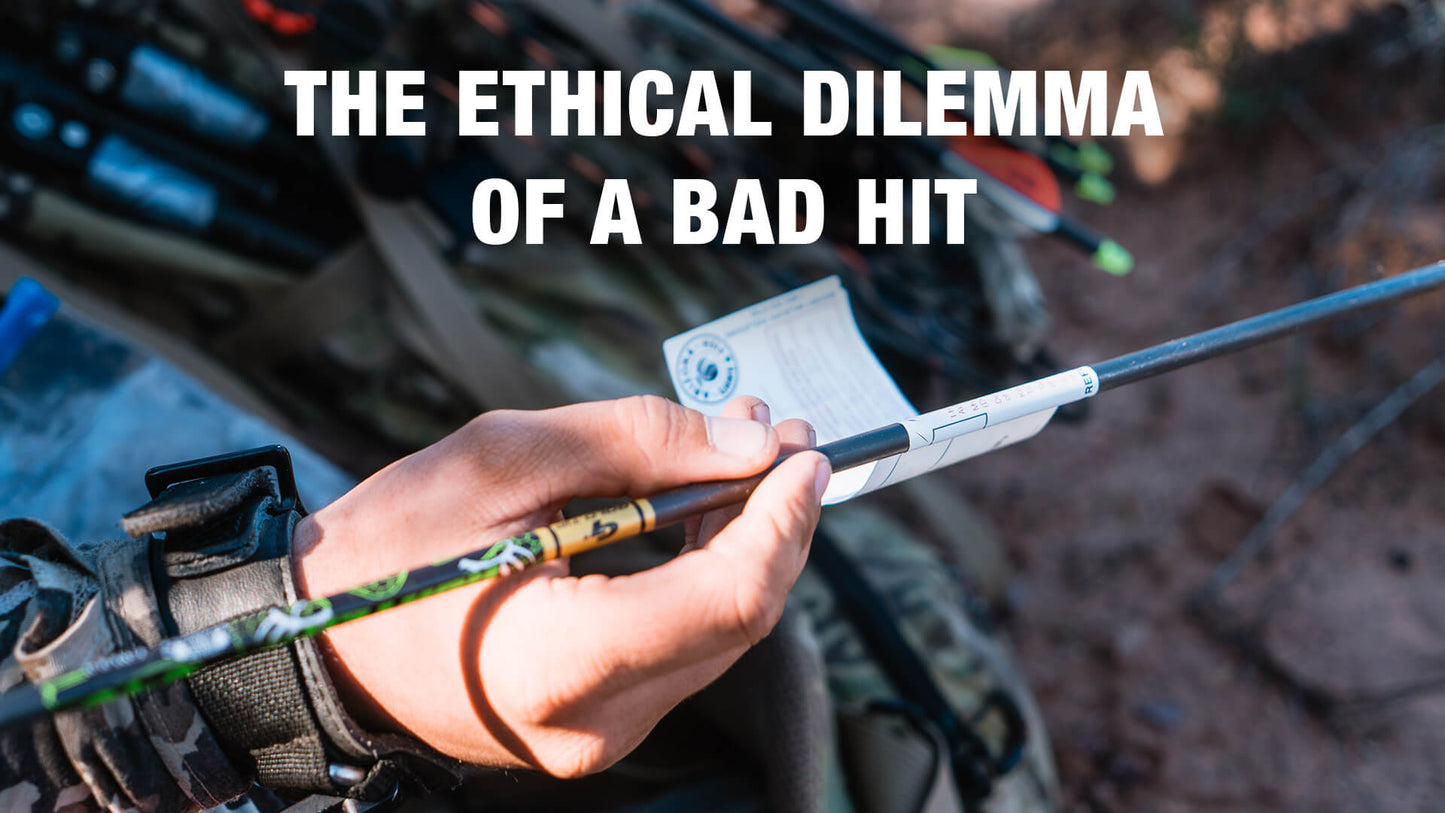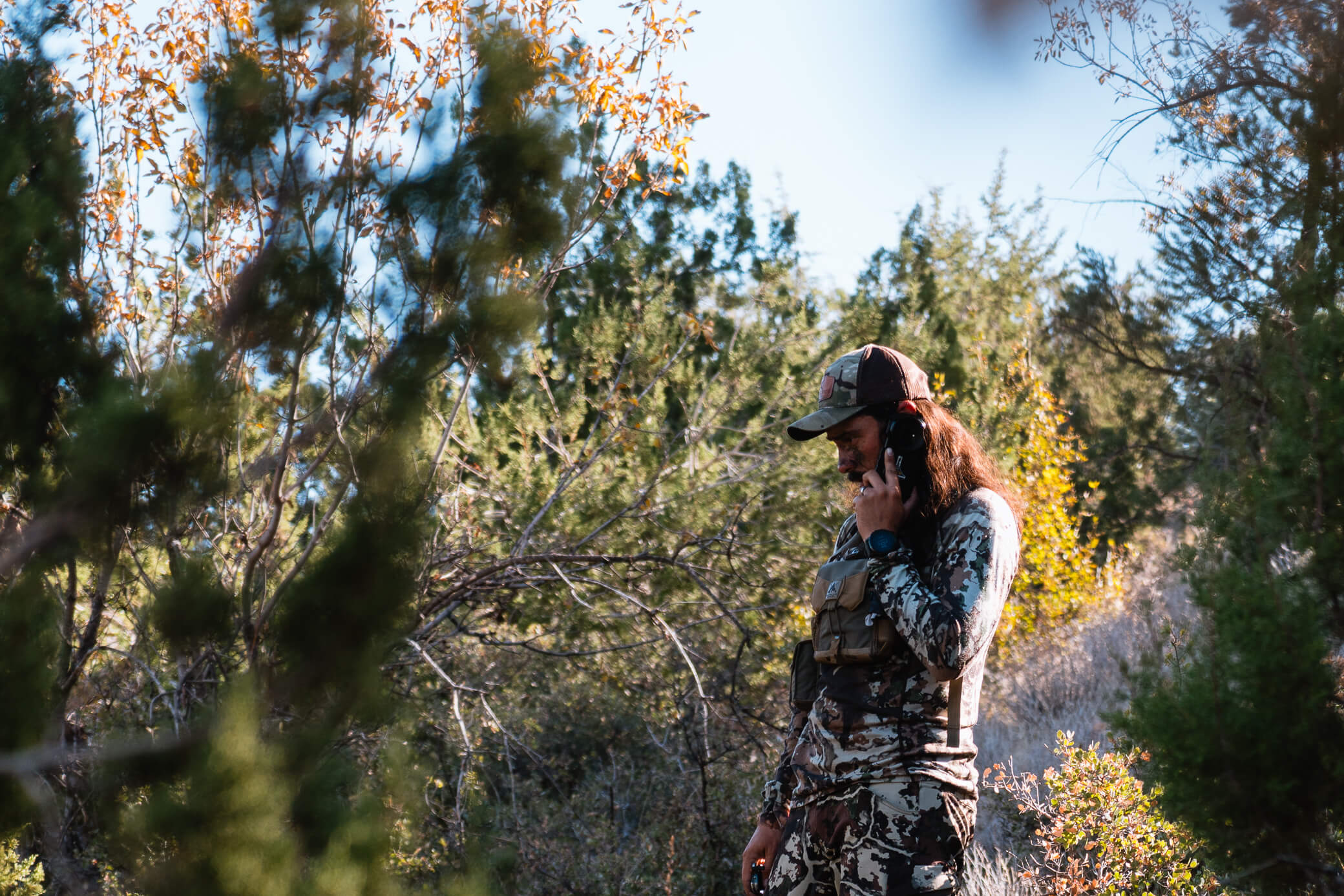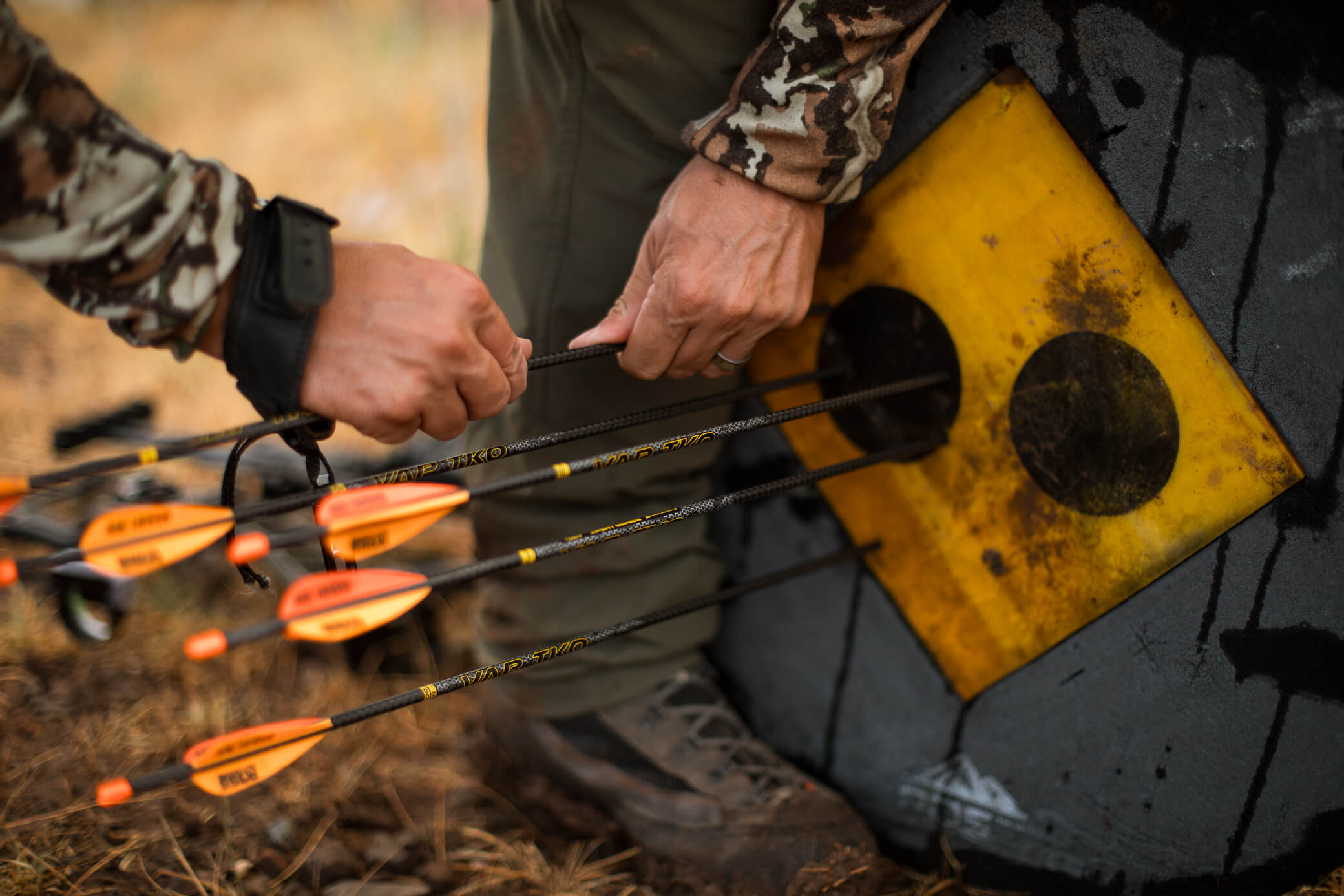
We had been hunting hard for seven days, but no arrows had taken flight. With 45 minutes left of light, we spotted a great bull about a mile out. Like hungry coyotes, we quickly moved through the dense high desert to close the distance before nightfall. As the sun dipped into the horizon, we were presented with a great shot opportunity. We heard the arrow hit, watched the bull run off, and decided to give it time. After a frosty night, we picked up the blood trail, but couldn't find the bull. The search continued until we found ourselves with nothing but a nagging question to answer...
Should we keep hunting or hang it up?

If you hunt long enough, you will eventually (and unfortunately) find yourself in a similar situation, with a similar question to answer. Is the more ethical decision to stop hunting and notch your tag? Or are we overthinking the situation and should we continue in pursuit? After all, a mountain lion doesn't stop hunting because it lost a deer. Predators kill to eat and we are predators. I've experienced my fair share of this mental dilemma. On one hand, we're human. On the other, well, we're human. Here are some things to consider when you find yourself in this situation.
WHAT DOES THE LAW SAY?
There are ethics and then there are laws. Ethics can differ from person to person. Laws, on the other hand, are concrete. In some places, once you hit an animal, no matter if you find them or not, you are done hunting. Some guides and outfitters operate this way as well. Know the laws and practices of where you are hunting and act accordingly. You may not have to wrestle with a dilemma of personal ethics if the law decides for you.
DID YOU MAKE A LETHAL HIT?
With experience, you start to realize what is a lethal hit and what is not. Most people I know, along with myself, will notch their tag every single time if we believe an animal to be expired. Whether it's seeing where the arrow/bullet hit, or finding a healthy amount of lung/heart/liver blood on the ground. The clues are there.
Not everyone thinks that way, though. It's a tough decision to stop the hunt on such a sour note. We invest a lot of time, effort, energy, and sometimes money into our hunts. We want that investment to matter. If we're honest, those things make it hard to end a hunt without something to show for it.
This reminds me of an elk hunt my brother had years back. After getting a not-so-good shot on a bull, and days of tracking good blood, we came up empty. My brother wrapped his Arizona tag around his arrow. He didn't feel comfortable going after a different bull and I supported that decision.
DID YOU DO YOUR DUE DILIGENCE?

Effort also comes into play here. You should always, and I mean always, do your due diligence after reaching out and touching an animal. It doesn't matter if you think the shot was lethal or if you think you missed it completely.
There have been times when I thought my shot missed the target, but I found the animal down when I went to inspect the scene. You made all of that effort to try and kill the animal, it's only right to put in even more effort to find them.
Search hard, and then continue the search. Animals that are hurt will oftentimes go toward water. Check nearby water sources, bedding areas, etc. And if nothing is found, return a week later and look for birds or signs of predators.
A NEW PERSPECTIVE
Many years back I lost a black bear after tracking minimal blood for the better part of two days. It almost made me quit bear hunting for the year. I consulted the local game and fish, and based on what I told them with the level of effort I put into tracking, they said there would be nothing wrong if I continued to hunt. I was surprised to hear this, but the more I thought about it, the more I was able to work out a sort of protocol for myself.

If you truly believe that you made a non-lethal shot based on the blood/sign you're seeing, and have done your due diligence tracking, then I don't believe there is anything wrong with continuing with the hunt. Keep in mind, that doing your due diligence could last days. And if you're not comfortable with continuing to hunt afterward, regardless if you believe the shot is non-lethal, then there is also nothing wrong with that either.
You might also reach a point where you are just not sure if the animal is dead or not. All I can say there is to try and take a step back, look at the situation as a whole, and be honest with yourself and with what you're seeing from how the animal reacted when you shot, to the blood and tracks. Take a moment. You'll make the right decision.
WE ARE NOT PERFECT

In a perfect world, we'd all make great shots and follow short blood trails, but the world is far from perfect. Something like an animal taking a step at the most inopportune time can make perfect go to unperfect fast. We as humans are also far from perfect. I don't care how good of a shot someone is, it doesn't make them invincible to bad ones.
In reality, every shot involves at least some risk.
Our job, as hunters, is to do everything we can to reduce risk as much as possible. We need to be capable, controlled, and confident hunters.
Each shot opportunity should involve a realistic “risk analysis” based on your ability, the conditions, and the overall situation. I've personally sat on both ends of the spectrum. Forcing a shot that is way too risky at the edge of my comfort zone? Been there. Making a mountain out of a molehill, not shooting, and being paralyzed by fear from past experiences? Done that too.
MOVE THE NEEDLE IN YOUR FAVOR

To decrease risk, the most obvious thing to do is improve your shooting ability. I'm talking about setting up realistic shots that you will encounter in the field. In terms of bowhunting, things like shooting through small gaps. Standing or kneeling in awkward positions and shooting. Practicing in gusty wind. I could go on for days. Hunting in the mountains is going to throw things at you that far exceed what a standard day at the range typically looks like. It takes intentional work and strategic practice to mitigate risk.
BACK TO THAT BULL…
Back to that bull I mentioned in the beginning of this article… I ended up seeing him later on in the hunt. He was healthy and I kept hunting him. Even though I was able to slip into bow range multiple times, the stars just never aligned. My cooler remained elkless in the end.
What is ethical and not ethical in hunting will be a conversation that never ends. There will always be some nuance and a level of personal choice.
The law provides guardrails, but between those boundaries, there will be elements of hunter ethics that are fluid — and not everyone goes with the same flow. Different experiences are going to result in different beliefs. We hunt differently, we practice differently, and there is nothing wrong if we think differently, as long as we have the best interest of the animal and the future of hunting as our priority.
Josh Kirchner is the author of the book, Becoming a Backpack Hunter, as well as the voice behind Dialed in Hunter, a blog that not only documents his own journey, but provides gear reviews, tips/tactics for western hunting, and encourages other hunters to chase and achieve their goals. Josh is a passionate bowhunter that has been hunting with his family since he was a small boy. When he is not chasing elk, deer, bear, and javelina through the diverse Arizona terrain, he is spending time with his wife, daughter, and two herding dogs.
